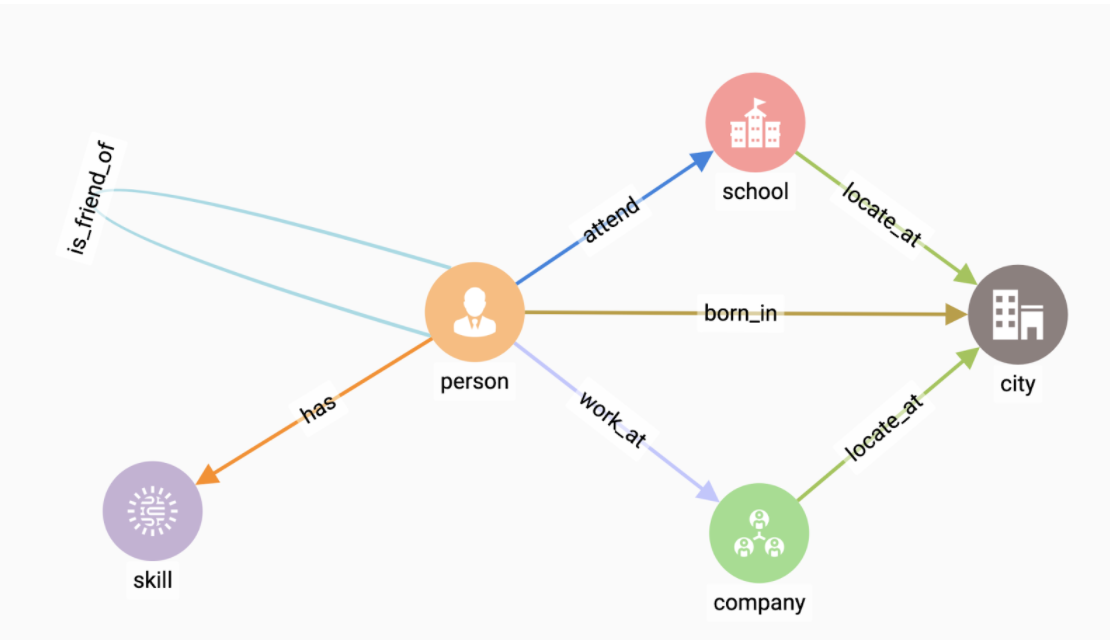Queries
In TigerGraph GraphQL service, you can create GraphQL queries to fetch specific fields of vertices and edges in a graph.
| In the context of TigerGraph GraphQL service, a query refers to a GraphQL query, as opposed to a GSQL query. If we ever mean to refer to a GSQL query, we use the term "GSQL query" instead of "query". |
For example, if we have the following schema in TigerGraph:

Figure 1. Example schema
One-hop pattern
We can write the following query to find all the people and their birthday and birth city.
query {
DemoGraph {
person {
name
birthday
born_in {
to {
name
}
}
}
}
}2 people are found with their names and birthday, one in Mountain View and another in Palo Alto:
{
"data": {
"DemoGraph": {
"person": [
{
"born_in": [
{
"birthday": "1995-01-01 00:00:00",
"to": {
"name": "palo alto"
}
}
],
"name": "Jenny"
},
{
"born_in": [
{
"birthday": "1973-10-05 00:00:00",
"to": {
"name": "mountain view"
}
}
],
"name": "Smith"
}
]
}
},
"errors": null
}N-hop patterns
In a GraphQL query, you can traverse multiple edges in a single request by nesting in the to field of edge objects.
If we expand on the previous 1-hop query, we can perform multiple hops in a single query. On top of a person’s name and their birth city, we can write the following query to also fetch the school they attend and the city in which the school is located.
query {
DemoGraph {
city {
name
reverse_born_in {
birthday
to {
name
attend {
to {
name
locate_at_To_city {
to {
name
}
}
}
}
}
}
}
}
}{
"data": {
"DemoGraph": {
"city": [
{
"name": "mountain view",
"reverse_born_in": [
{
"birthday": "1973-10-05 00:00:00",
"to": {
"attend": [
{
"to": {
"locate_at_To_city": [
{
"to": {
"name": "san mateo"
}
}
],
"name": "san mateo university"
}
}
],
"name": "Smith"
}
}
]
},
{
"name": "belmont",
"reverse_born_in": []
}
]
}
},
"errors": null
}